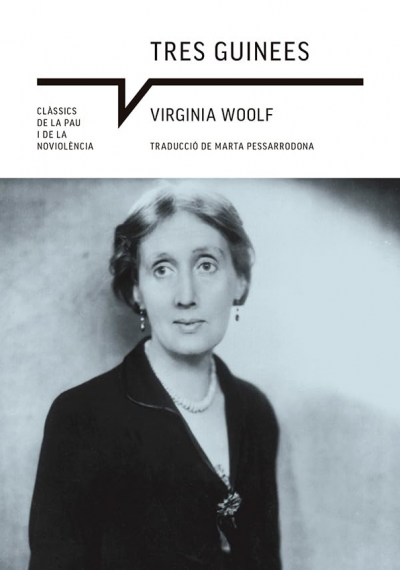
Virginia Woolf. Three Guineas. International Catalan Institute for Peace and Angle Editorial, 2025. Classics of Peace and Nonviolence Series, No. 24
Three Guineas is Virginia Woolf’s response to a letter from a man inquiring about the prevention of war. Written during the Spanish Civil War and the rise of European fascism, the book offers a profound analysis in which the British novelist links the patriarchal system with fascist militarism, contrasting both with the culture of peace that has traditionally been developed in spaces managed by women. It presents a new perspective on Woolf’s work in relation to women’s emancipation and the values that can lead us to freedom and peace.
Originally published by the ICIP and Angle Editorial in 2011 as part of the “Classics of Peace and Nonviolence” series, the book is reissued in 2025 in an updated version, featuring the collection’s new graphic identity and an unpublished epilogue by Elena Grau Biosca, who offers a renewed reading through the lens of contemporary pacifist feminisms.
The book has been translated and introduced by Marta Pessarrodona.
The Author
Virginia Woolf (London, 1882–1941) is considered one of the mothers of the modern novel. Among her most renowned works are Mrs. Dalloway, To the Lighthouse, The Waves, and Orlando—novels rich in symbolism and metaphor, centred on characters immersed in personal impressions, feelings, and thoughts through interior monologues. She also wrote essays, such as Three Guineas and A Room of One’s Own. In 1941, she took her own life by drowning in the River Ouse, near her home.
